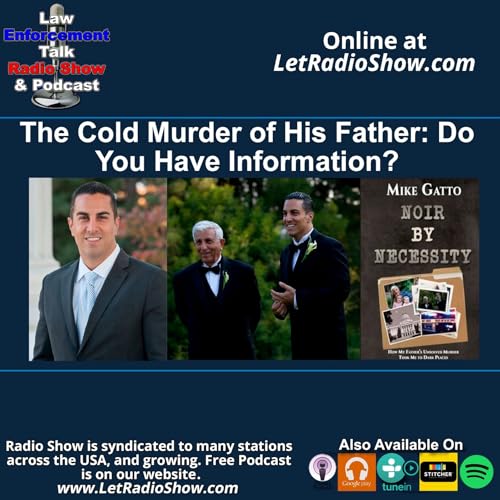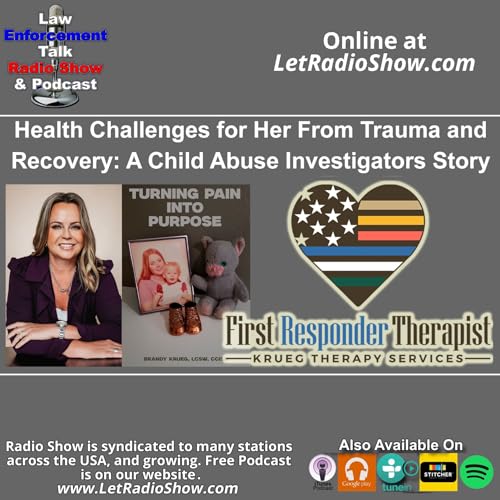The Cold Murder of His Father: Do You Have Information? A Case That Still Haunts Los Angeles, California. More than a decade later, the killing of Joseph Gatto remains one of Los Angeles’ most haunting unsolved crimes. The Home Invasion that took his life did not just devastate a Family, it reshaped the inner world of his son, former California lawmaker Mike Gatto, and pulled him into a dark, unresolved mystery that continues to demand answers. The Law Enforcement Talk Radio Show and Podcast social media like their Facebook , Instagram , LinkedIn , Medium and other social media platforms. Joseph Gatto was 78 years old, strong, active, and deeply woven into the fabric of his community. Friends believed he would live to be 100. Instead, he died 22 years too soon. Check out his Podcast appearance, and content shared for free on the Law Enforcement Talk Radio Show and Podcast website, also on Apple Podcasts, Spotify, YouTube and most major podcast platforms. On November 12, 2013, Joseph Gatto was shot inside his Silver Lake Home, a neighborhood often described as one of the safest and most culturally vibrant areas of Los Angeles. The following day, his daughter, arrived for their weekly dinner and made a discovery no family should ever have to endure. After calling out his name, she found her father slumped over his desk on the third floor, dead from a gunshot wound to the abdomen. Supporting articles about this and much more from Law Enforcement Talk Radio Show and Podcast in platforms like Medium , Blogspot and Linkedin . Silver Lake, once described by Forbes as the “hippest” neighborhood in Los Angeles, is known for its art culture, creativity, and sense of community. Joseph loved it there. A retired art teacher, he had spent decades giving back, teaching high school and college students, selling concessions at Dodger Stadium at night, and creating art as a jewelry maker and author. In 1985, he helped found the Los Angeles County High School for the Arts, where he led the visual arts department. The Cold Murder of His Father: Do You Have Information? A Case That Still Haunts Los Angeles, California. “He was prominent throughout the community and liked by everyone,” friends recalled. To many, the idea that he would be the victim of a violent crime was unthinkable. Yet investigators quickly determined Joseph Gatto had been killed during what appeared to be a Home Invasion robbery. There were no obvious signs of forced entry, but the house had been ransacked and a file cabinet breached. Police later said they were looking for a man seen breaking into cars in the area around the same time, suggesting the murder may have been linked to a local burglary spree. Available for free on the Law Enforcement Talk Radio Show and Podcast website, also on Apple Podcasts, Spotify, Youtube and most major Podcast networks. Despite suspect sketches, extensive media coverage, and a $50,000 reward, the case stalled. Over time, it became what investigators now acknowledge as a cold case. The Cold Murder of His Father: Do You Have Information? “The murder of Joseph Gatto captivated Los Angeles,” said Robert Kovacik, anchor and reporter for NBC Los Angeles. “Many veteran journalists still wonder how and why it happened. The details of this horrible crime and those affected by it continue to fascinate.” At the time of the murder, Mike Gatto was an up-and-coming political figure, serving as a four-term member of the California Legislature representing Los Angeles. He chaired the powerful Appropriations Committee, served as Assistant Speaker, and authored several pieces of landmark legislation. Publicly, he was immersed in the world of politics. Privately, his life had been shattered. Mike Gatto has said he believes his father’s killer is still out there. Look for The Law Enforcement Talk Radio Show and Podcast on social media like their Facebook , Instagram , LinkedIn , Medium and other social media platforms. That belief, and the frustration of unanswered questions, pulled him into what he describes as the world of noir: wild theories, unyielding detectives, missed connections, and unimaginable violence. Friends, neighbors, and family members wanted justice. Detectives repeatedly told the public the case would be solved. As the years passed, those assurances faded. The impact of the crime eventually found its way onto the page. The Cold Murder of His Father. In his book, "Noir by Necessity: How My Father’s Unsolved Murder Took Me to Dark Places", Gatto chronicles the investigation and its toll with unflinching honesty. The book reads like a thriller, but it is rooted in real grief, real clues, and a real system that, in this case, failed to deliver answers. “This is a modern murder mystery,” Gatto has said, “and a candid look at how the dark underbelly of Los Angeles collided with the political world.” The book details every lead, every theory, and every haunting detail Gatto uncovered as he ...
Más
Menos
 Feb 1 202640 m
Feb 1 202640 m Jan 28 202640 m
Jan 28 202640 m 40 m
40 m 40 m
40 m Jan 18 202640 m
Jan 18 202640 m 41 m
41 m Jan 11 202641 m
Jan 11 202641 m 38 m
38 m
